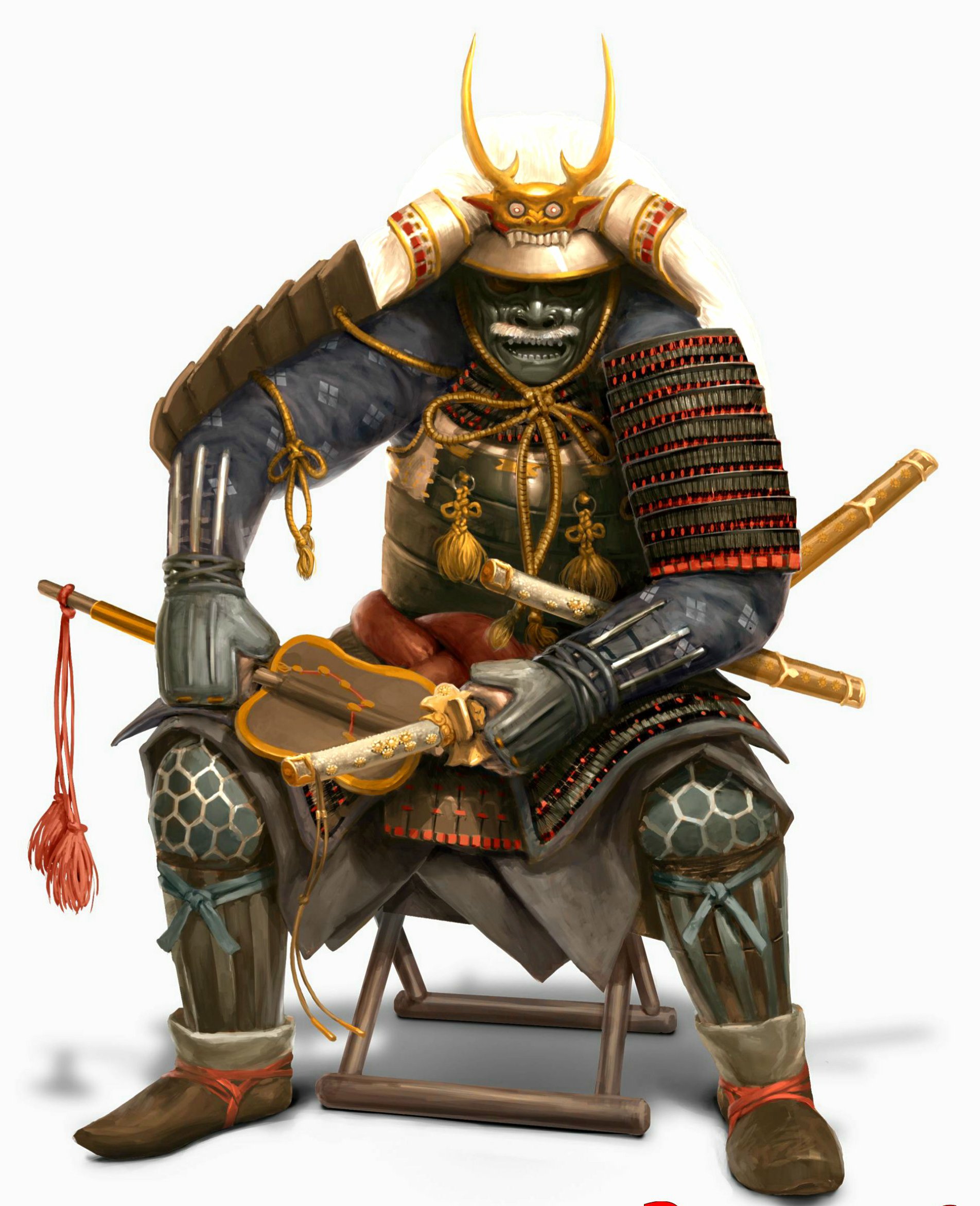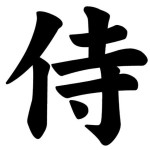I was watching The Last Samurai (I love Ken Watanabe in any role) this week. Now some folks might get a little annoyed by the movie notes that sometimes flash across the screen. Not me. I’m a big movie buff so I love to hear how the producers were able to concoct some of the images we see in the final film. As a writer I love to know the research behind the story as well. As a martial artist, I found the research done on this film particularly interesting so I had to do more of my own.
 In doing so, I set out to find what it meant to be a Samurai and specifically, what is known as the bushido code really struck a chord. These are traits and philosophies that mean a lot to me as a martial artist and as a person. This is especially true since we consider ourselves martial artists all of the time, not just when we’re in the dojo.
In doing so, I set out to find what it meant to be a Samurai and specifically, what is known as the bushido code really struck a chord. These are traits and philosophies that mean a lot to me as a martial artist and as a person. This is especially true since we consider ourselves martial artists all of the time, not just when we’re in the dojo.
Listed below are the seven virtues of the Samurai known as the bushido code and what they mean to me:
Rectitude (Gi): This is also known as justice. This is not the social justice that is so rampantly talked about these days and (in my opinion) a distortion of what justice really means. This sense of justice is more about doing the right thing in the midst of difficult circumstances and when it may be unpopular. It is more righteousness in the strictest moral sense as opposed to entitlement. Real justice is not perverted or follows a crowd in doing wrong. Instead, it has a motive that is purely seeking the right choice without a hidden agenda.
Courage (Yu): This virtue does not entail foolish endeavors of heroism or charity for the sake of an audience or to be seen in good favor in the eyes of men. To the contrary, it means doing the right thing even if you’re alone in the effort. Sometimes this means you will be hated by men. Doing what is right can sometimes lead to isolation but always ends with a clean conscience and no regret. It’s jumping into the deep end.
Benevolence (Jin): Also known as compassion, this virtue must be an honest and real sense of concern or empathy for those who are hurting, ill, poor or otherwise. I personally believe that the reason why we go through adversity is so that we can help others navigate theirs. If we can’t do that sincerely, we have no reason to be here. We have become a society that is very detached from each other. We are not genuinely in tune with what our neighbor is going through. It is too easy to insult each other in a forum or a comment section of a website without any consequences. Unlike some, I do not blame technology for this. We have a choice. Technology is simply a means to an end. We can spread good or we can spread hate. And quite frankly, it’s too easy to blame the internet and advances in technology. The words that appear on forums and social media sites are written by people, not by themselves. Benevolence can thrive anywhere. And real benevolence does not stop at feeling something. It starts with doing something good even if it makes us uncomfortable. My father passed away a year ago next May. Even now I can clearly remember who was there for me, who had a genuine kind word of concern and who did not stop to speak a word despite the fact that they saw me every day after. This is not resentment I am harboring. The lack of concern is simply a shining example of what I don’t want to be.
 Respect (Rei): This one is huge for me because it’s clearly something that we have thoughtlessly discarded. We are so concerned with our standing in society, the loss of our job or position, etc. that we have very little respect or regard for each other. Respect is both given and received and does not dominate for the sake of filling an insecurity in ourselves. When one side has no respect for the other, the exchange stops. Yes, respect means to hold with regard those who are in authority over us but the exchange is a whole lot easier when we don’t seek to control through manipulation.
Respect (Rei): This one is huge for me because it’s clearly something that we have thoughtlessly discarded. We are so concerned with our standing in society, the loss of our job or position, etc. that we have very little respect or regard for each other. Respect is both given and received and does not dominate for the sake of filling an insecurity in ourselves. When one side has no respect for the other, the exchange stops. Yes, respect means to hold with regard those who are in authority over us but the exchange is a whole lot easier when we don’t seek to control through manipulation.
Honesty (Makoto): I love our dojo and there are many things that I love about my instructor, Grand Master Danny Chapman. But if there is one thing that I always point to it is that he is respectfully direct. There are no hidden agendas and no one telling me one thing and meaning another. Besides the fact that he is the first leader I’ve ever had in my life who has dealt with me in an honest fashion, I love it that I never have to worry about where he stands on an issue. His intentions towards me are pure. That way when we are given a compliment we know beyond a shadow of any doubt that it is meant and that we’ve truly earned it without conceit but through hard work. Our school is lead with integrity and straightforwardness and we’re never in the dark. There is no deceit or cheating. That’s the kind of leader I want to be. The only hard part about that is when I have to go back into the “real world” and start all over again. Oy.
Honor (Meiyo): When I think of honor it’s not simply recognizing the good qualities that we’ve learned to live in practice that have been handed down to us. Honor is also our reputation. As alluded to before, we teach our students that we are always martial artists whether we’re inside the dojo or out. So the natural question to follow is how do we act when no one is looking? That’s when we are who we really are. Honor is consistency. Honor is real. Honor does not sit in the seat of scoffers or bring shame upon those closest to us. If we live our lives with honor then it is all the more meaningful to those whom we honor. Hold fast to what is good. We show the greatest honor in those in our loves when we are concerned about their needs both physical and emotional.
It’s sad that our society no longer views honor as a virtue.
Loyalty (Chu Gi): If there is one virtue that is sorely missing today it is this one. Promises are easily broken and relationships torn apart because of abuse, self-interest, insecurity, and the list goes on. What we fail to understand is that with genuine loyalty comes relational security. We fear that if we’re loyal we’re going to get trampled on. And sometimes that does happen but no one said that loyalty was easy. It is not. In fact, sometimes it downright hurts. Just to be clear I am not speaking to wives in abusive situations. I’m speaking to the husbands who abuse. Real loyalty is motivated by love. Real love is motivated by selflessness.
Notice a pattern? All of these virtues are inter-related. They go hand-in-hand. Without one the others suffer greatly and all balance is lost. And without love at the heart of all these things we are nothing but a clanging cymbal.
And what is love?
Love is patient, love is kind.
It does not envy, it does not boast,
it is not proud.
It is not rude, it is not self-seeking,
it is not easily angered, it keeps no record of wrongs.
Love does not delight in evil but rejoices with the truth.
It always protects, always trusts, always hopes, always perseveres.
Love never fails
Are you following the code?
Chat soon,
~L


I shall….see you around on ASMSG stuff, no? Best to you…
Hi Sarah,
Thanks so much for writing. Unfortunately, I don’t do interviews but the only reason I don’t is because right now it’s just me who creates all of the content for the website in the midst of doing publicity for my books. All that to say, I don’t have the staff to do it. It’s a very kind compliment though, thank you so much. At some point, I’d love to include more reviews. Please stay in touch for when that time comes.
Lenny
Do you ever do interviews of authors not writing the same genres as you? I am a historical fiction writer with my debut novel about to come out (check out my website: http://www.srmallery.com). I like your site very much, and was just wondering…
Thank you,
Sarah Mallery (S.R.Mallery)